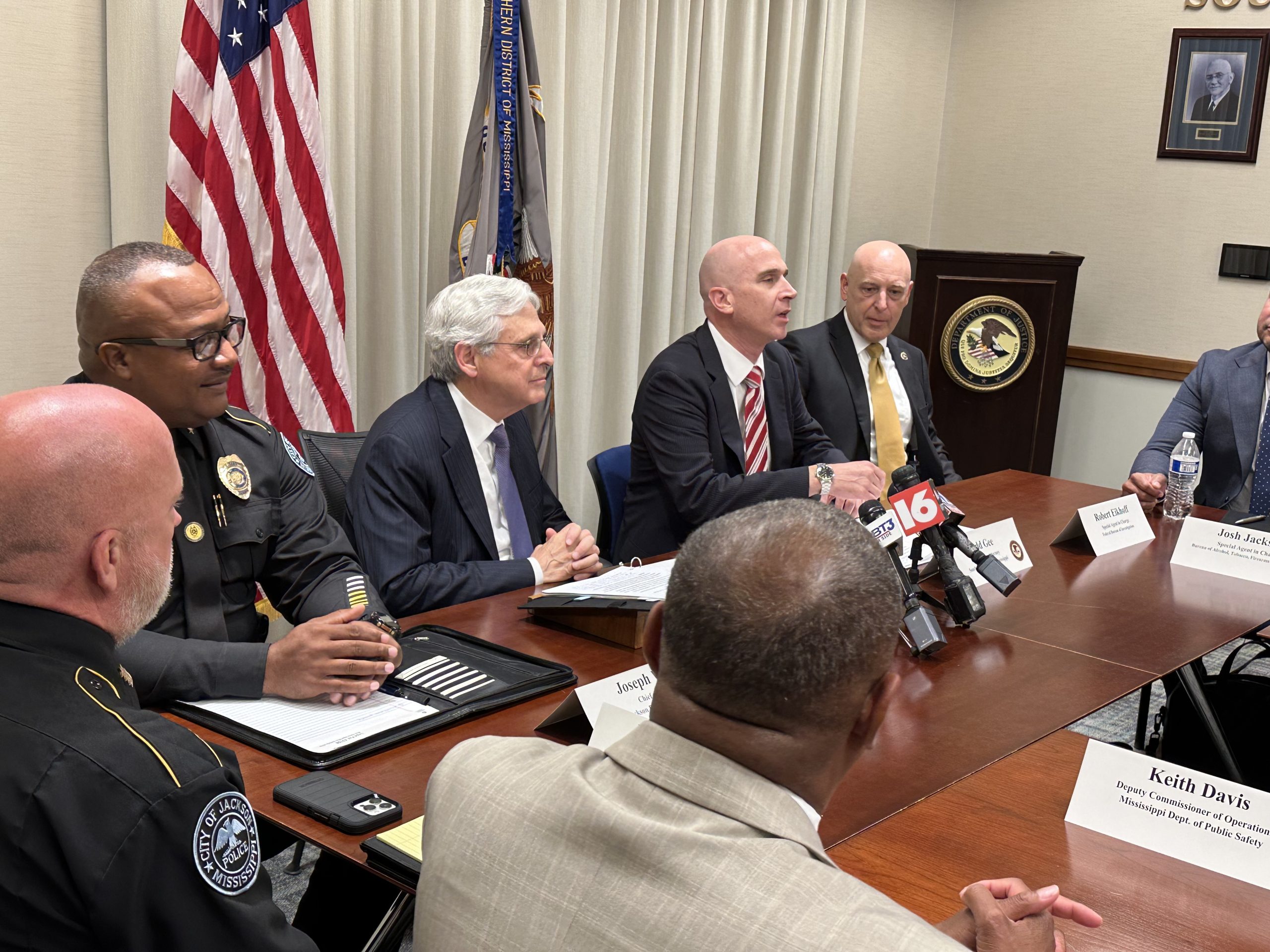Attorney General Merrick B. Garland met Wednesday with law enforcement officials in Mississippi, days after the Justice Department announced it was widening its investigation into a local sheriff’s office where a group of deputies known as the “Goon Squad” has been accused of brutalizing residents for two decades.
He called the Goon Squad’s acts “a betrayal of their community, a betrayal of their profession and a betrayal of their fellow officers.”
Rankin County came to national attention last year after officers from a self-described “Goon Squad” tortured two Black men in their home and shot one of them, nearly killing him. Six officers were sentenced to federal prison in March, and last week, the Justice Department announced a probe into the county’s policing practices.
Garland’s visit was part of a tour he said he is making to each state as attorney general, and reiterated the Justice Department’s commitment to working with local officials, deputies and the community to conduct a comprehensive investigation into violations of civil rights committed by law enforcement.
He also discussed various efforts by the Justice Department throughout the state, including their work to reduce violent crime, curb interstate drug trafficking and investigate police departments accused of misconduct.
He touted the Justice Department’s convictions of drug traffickers funneling narcotics from California to Mississippi and $300,000 in funding to enhance the state’s forensic science capabilities.
He credited the department’s work with helping to reduce homicides by nearly 12% across the U.S.
After addressing the press, he spoke with representatives from federal agencies along with the Mississippi Department of Public Safety, the Jackson Police Department, the Department of Public Safety for the Mississippi Band of Choctaw Indians, as well as sheriffs from Hinds, Warren, Lauderdale, Adams and Harrison counties.
Rankin County Sheriff Bryan Bailey, who has denied any knowledge of the Goon Squad’s operations, was not among those present.
Justice Department investigators are seeking to determine if the Rankin County Sheriff’s Department engaged in a pattern of unconstitutional policing through widespread violence, illegal searches and arrests or other discriminatory practices.
This review, known as a pattern or practice investigation, is expected to probe department records and practices to determine whether the agency has allowed routine abuses to occur. The investigation would not seek criminal charges for individual officers, but could result in a lawsuit against the department designed to force reforms and federal monitoring.
An investigation by The New York Times and Mississippi Today detailed the stories of nearly two dozen residents who said that Rankin deputies had burst into their homes, restrained the residents and brutalized them in search of illegal drugs.
According to dozens of interviews with victims and witnesses, the deputies waterboarded people, beat them and used Tasers to shock them in the groin and face. The accusations are supported by medical records, photographs of injuries and department records tracking deputy Taser use.
At least 20 Rankin County deputies were present during these incidents, reporters found, including the former undersheriff, high-ranking detectives and a deputy who later became a local police chief.
Five deputies and a local police officer were convicted for their role in torturing Michael Jenkins and Eddie Parker last year, but so far, no other deputies have been criminally charged.
In a statement on Facebook last week, the Rankin County Sheriff’s Department wrote that it would “fully cooperate with all aspects of this investigation, while also welcoming DOJ’s input into our updated policies and practices.”

The Rankin County NAACP is collecting signatures for a petition calling on the governor to remove Mr. Bailey from the office. Rankin County NAACP chapter president Angela English said they are close to the nearly 30,000 signatures required.
“He has allowed his deputies to carry out criminal activities without any repercussions,” she said. “In any other leadership capacity, someone would have lost their job or accepted responsibility for their actions and resigned. He has done neither.”

